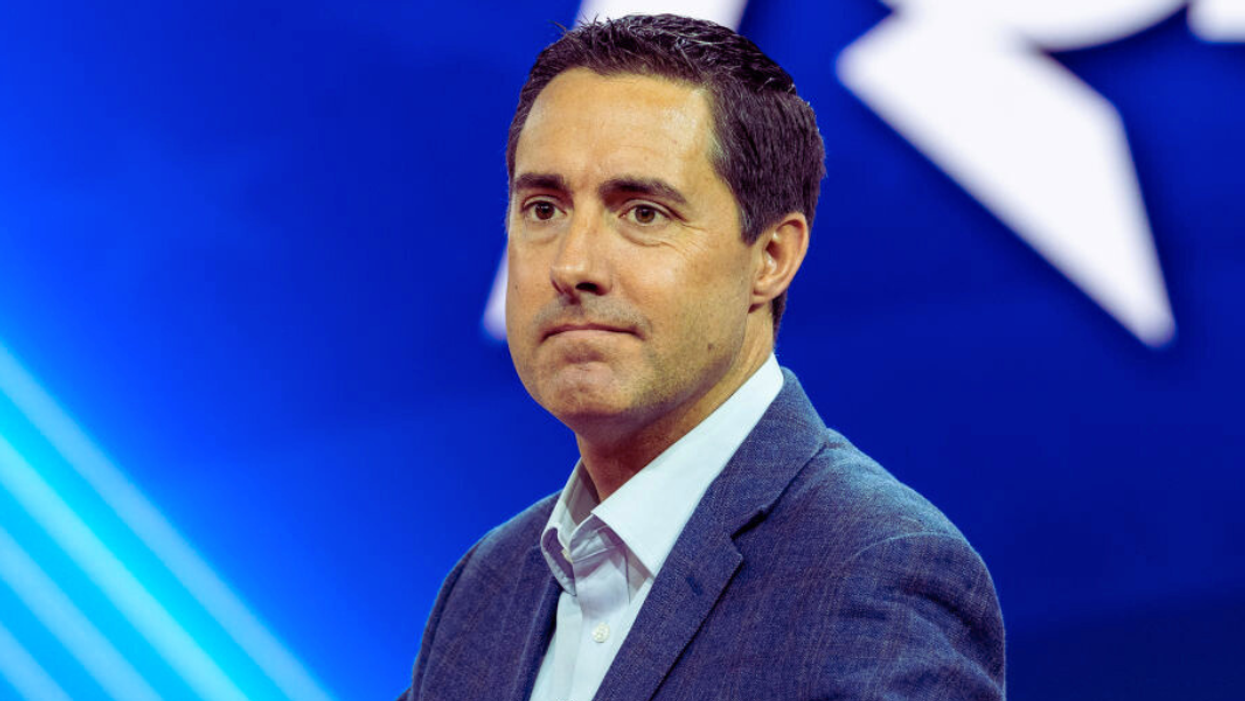Kevin Johnson is the Executive Director of the Election Reformers Network, a national nonpartisan organization advancing common sense reforms to protect elections from polarization.
What would the NCAA do if the head referee in the Ohio State-Michigan game spent his free time leading rallies and fundraisers for the Wolverines? Even if he assured fans he’d be neutral for the game itself, Buckeye nation would never believe him.
This scenario just happened in the political arena, in the campaign surrounding the August 8 Issue 1 ballot initiative.
Ohio Secretary of State Frank LaRose planned, campaigned for, solicited money for, and bent state rules for the “yes” vote in that election. During the final weeks of the campaign, he was a declared candidate for the U.S. Senate with a personal interest in taking sides to gain GOP support. Though implications for the abortion ballot initiative in November have dominated news coverage of August’s Issue 1, this leadership failure atop the state’s election system should not be ignored. Ohio Elections need neutral referees just as much as sports do.
LaRose brushed off accusations of conflicts of interest, saying campaigning occurred outside his “official function.” But imagine a judge publicly giving advice to help one side win a case before him; he’d still be sanctioned if he did so outside his courtroom. Likewise, open public bias from election administrators shouldn’t happen, whether within official functions or not.
LaRose is hardly alone. Research found that one-third of secretaries of state serving since 2000 endorsed a candidate running in a race under their supervision, and 20% lost lawsuits in circumstances where secretaries’ actions arguably favored their political party. Tellingly, these partisan acts occurred at a higher rate among the subset of secretaries who ran for higher office — as LaRose is now.
Ohio elections have been undermined before by blatant partisanship in the conduct of elections, under Secretary of State Ken Blackwell, who co-chaired President George W. Bush’s state reelection campaign and set rules reducing voter registration and provisional ballots to help Bush win.
Ethical problems happen on both sides politically. Since 2021, Colorado’s Democratic Secretary of State Jena Griswold has led a political action committee that spent millions helping Democrats win in battleground states. While not illegal, her actions no doubt make it harder for Colorado Republicans to trust she’ll neutrally administer elections in the state.
Secretaries of state often argue that they don’t count the votes or manage polling stations, so bias poses no risk to elections. But that argument overestimates citizens’ knowledge of election details, and underestimates their need for individual leaders, not a system, to trust in. And secretaries do have discretion over election steps that can impact turnout and thus results, discretion LaRose apparently used to help “yes” voters get around paperwork hurdles this summer.
Frank LaRose is a decorated military veteran who expertly managed pandemic elections in 2020. But his sense of duty and discipline seems to have disappeared under the pressure candidates face these days to prove their hyper-partisan bona fides. His failings illustrated why, in our polarized era, it’s no longer fair to voters for a partisan politician to oversee elections.
There are several options for changing course. For one, the secretary of state could be elected in nonpartisan elections, an idea supported by more than 70% of Republicans and Democrats nationwide. To ensure fairness and functionality, that idea needs supporting guardrails, such as provisions to prevent party insiders from running under the guise of being nonpartisan, as well as ethics requirements.
A bolder and more comprehensive solution is to transfer election oversight from the secretary to an impartial election board, which would appoint a professional, nonpolitical election administrator. (One approach to structuring such a board is explained here.)
In the area of redistricting, Ohio voters increasingly agree that it’s a conflict of interest for legislators to draw district maps and pick their own voters. The same logic holds for elections: It’s a conflict of interest for activists favoring one side to be in charge. All of our peer democracies have rules to keep blatant partisanship out of their elections — rules that help explain why voter confidence is so much higher overseas.
The voters of Ohio have the power to fix this, using the same mechanism their vote protected on August 8. What better way to follow up on the August 8 Issue 1 result than by launching an initiative to permanently de-politicize the position of secretary of state, to make Ohio a national leader in building sensible election systems all citizens can trust?
This piece was originally published in the Ohio Capitol Journal.

















 "On the Frontlines of Democracy" by Nonprofit Vote,
"On the Frontlines of Democracy" by Nonprofit Vote,

Trump & Hegseth gave Mark Kelly a huge 2028 gift